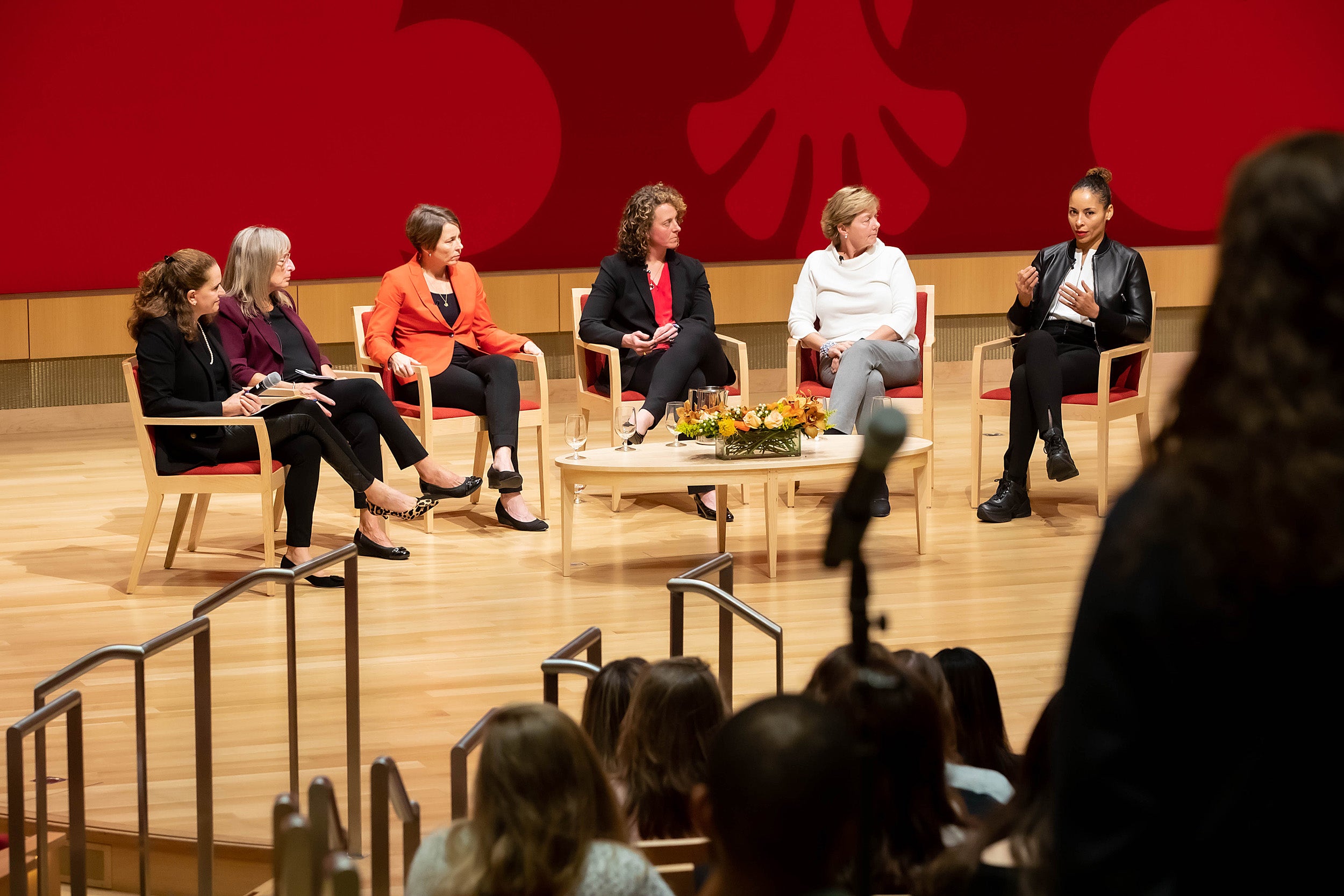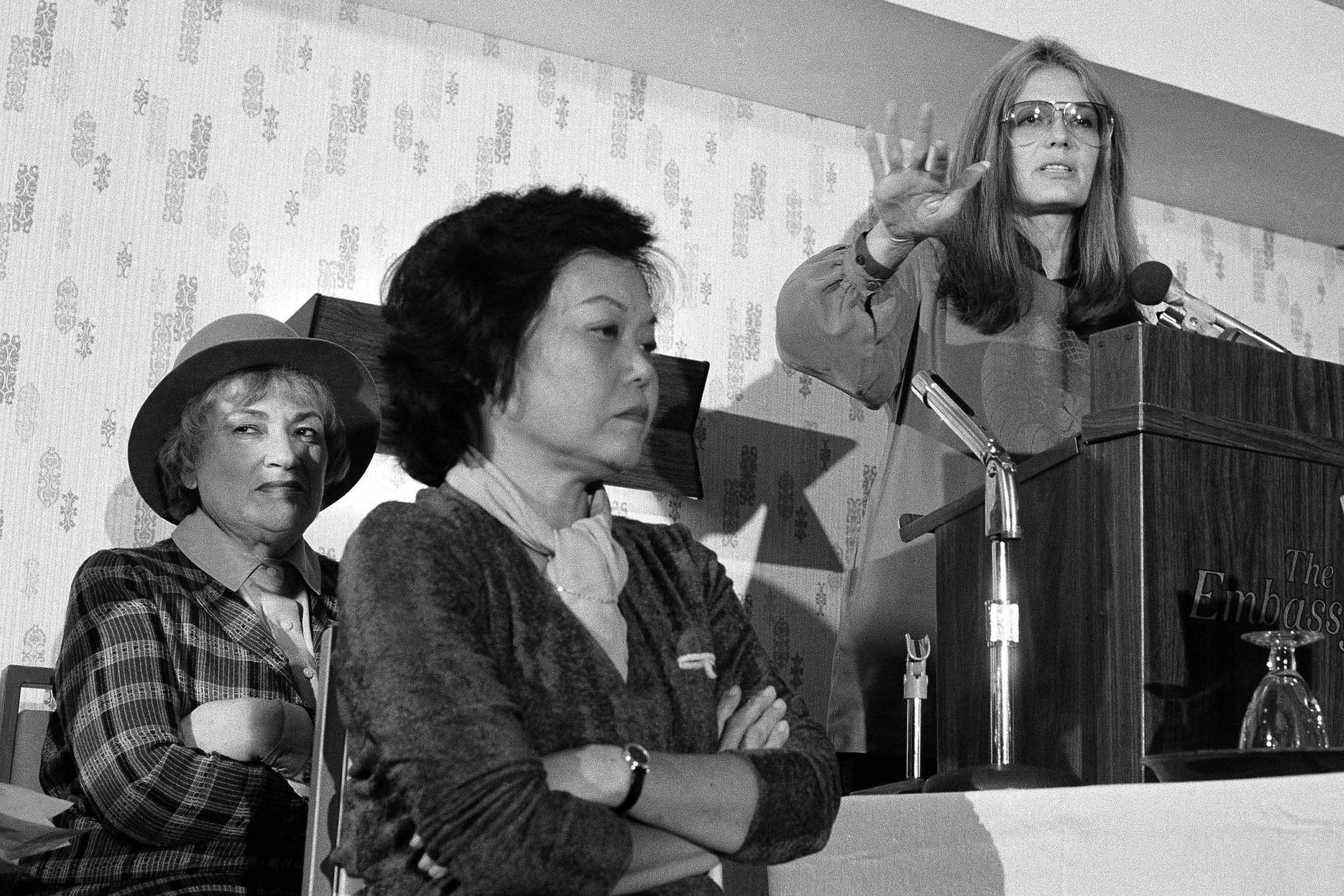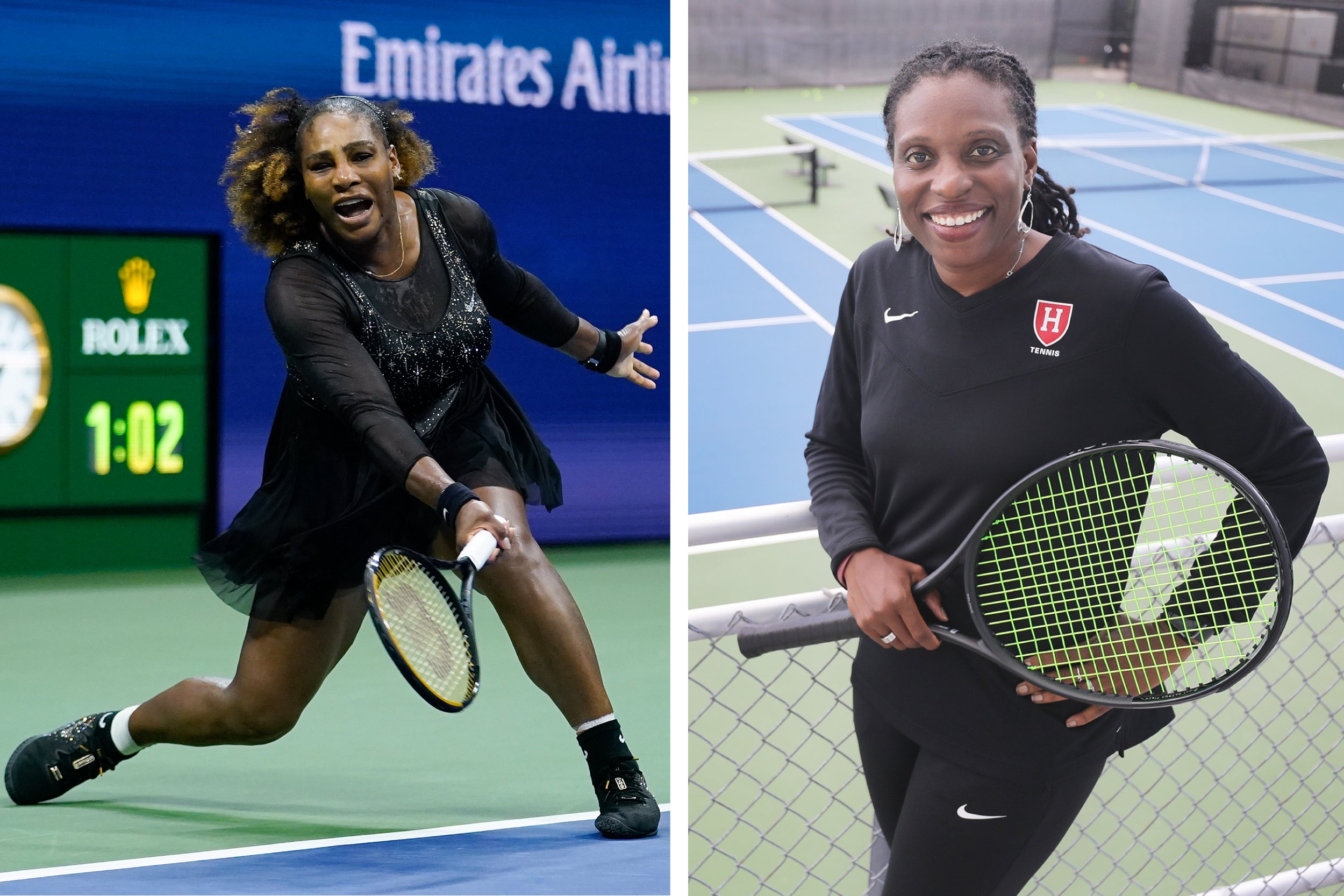
Harvard head coach Traci Green (right) got the chance to play tennis legend Serena Williams (pictured at U.S. Open this week) before she was a star.
AP Photo/Charles Krupa; James Byard/Harvard Staff
Meet the coach who once beat Serena
Harvard’s Traci Green recalls first meeting, reflects on how star has changed tennis, American culture
It’s not everyone who can say they beat tennis legend Serena Williams. In fact it’s a claim most women on the pro tour can’t make. But Traci Green can. Of course, that was years ago. And they were both teens. And Traci was older. Still.
Green, the Sheila Kelly Palandjian Head Coach for Harvard Women’s Tennis since 2007, began her own tennis career as a nationally ranked youth player around the same time Serena and sister Venus Williams were likewise beginning their ascent. Green went on to become a member of the U.S. Junior National Team, University of Florida Gators’ National Championship team, and a three-time first-team All-SEC selection in singles and doubles. She serves on the USTA Collegiate Pathway National Committee and on the board of the Black Women in Sport Foundation. As Serena Williams wraps up her iconic four-decade career at this year’s U.S. Open, Green reflected on her memories of the “GOAT,” and Williams’ far-reaching influence on tennis and beyond. The interview was edited for clarity and length.
Q&A
Traci Green
GAZETTE: Traci, having watched Serena Williams play your whole life, what does it mean to you to see her celebrated this week as the Greatest of All Time, and to know that we’re seeing the end of an era?
GREEN: It’s definitely a bittersweet feeling to see greatness walk away, especially when you can remember her and her entire family from way, way back. She’s touched so many lives and was clearly much more than a tennis champion to so many people.
I’m personally sad to see her go, but excited to see her continue to change the trajectory of things full-time. I have no doubt that she will crush it.
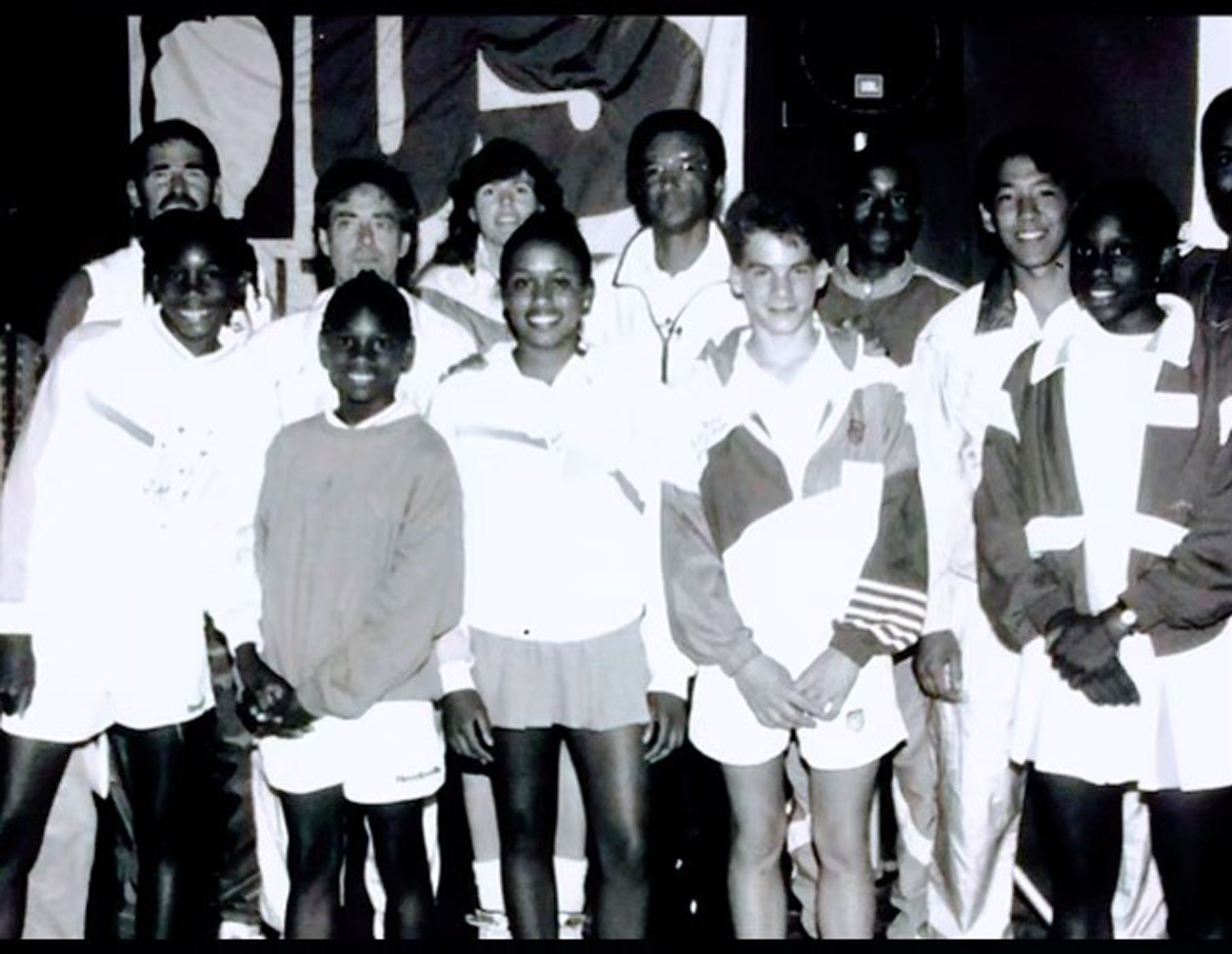
Venus and Serena Williams (from left, bottom row) appear in a promotional photo with Traci Green (far right, bottom row) for a 1993 Arthur Ashe Youth Tennis Center event.
Courtesy of Traci Green
GAZETTE: You were a peer of the Williams sisters growing up as a youth tennis player. When did your paths first cross?
GREEN: I first met Venus and Serena in 1993 at an exhibition fundraiser at the then-Arthur Ashe Youth Tennis Center in Philadelphia, where I grew up. Coach Ashe, who periodically coached and mentored me at the time, invited some up-and-coming junior players to be part of the event.
I was almost 15, and Venus and Serena were a couple of years younger. They weren’t playing tournaments at that time, but there was a lot of hype in the media about their family and their potential — especially Venus, who was the main attraction at Coach Ashe’s event.
I was ranked in the top five of my age division, so I was playing lots of national tournaments, and I kept hearing stories about these two sisters from Compton.
They came to this event with their father, and my family ended up hosting them that day and showing them all around the city. I had school, but my parents took them for Philly cheesesteaks and even brought them to my mom’s practice — she was the head women’s lacrosse coach at Temple at the time. My dad and Mr. Williams particularly hit it off and kept in touch over the years.
After school got out, we all went to the event that evening, and I found that they were just two silly, normal young kids like I was.
GAZETTE: Did you ever play against Serena as a junior?
GREEN: About a year and a half later, I played a practice set against Serena on a clay court at a USTA training camp in Key Biscayne, Florida. And I was fortunate to be victorious.
When I first saw Serena play, she was still very little physically, and she was an OK player. Fast forward a year, and she was a completely different player!
Even though she was younger than me, I was amazed at how skilled she was, and I was shocked by how hard she was hitting the ball. She literally ran down every ball on every rally and hustled until the point was absolutely over. She even dove for a ball on the clay.
I really admired her for that. She definitely put everything she had into it, and I’m not surprised she ended up playing that way throughout her career.
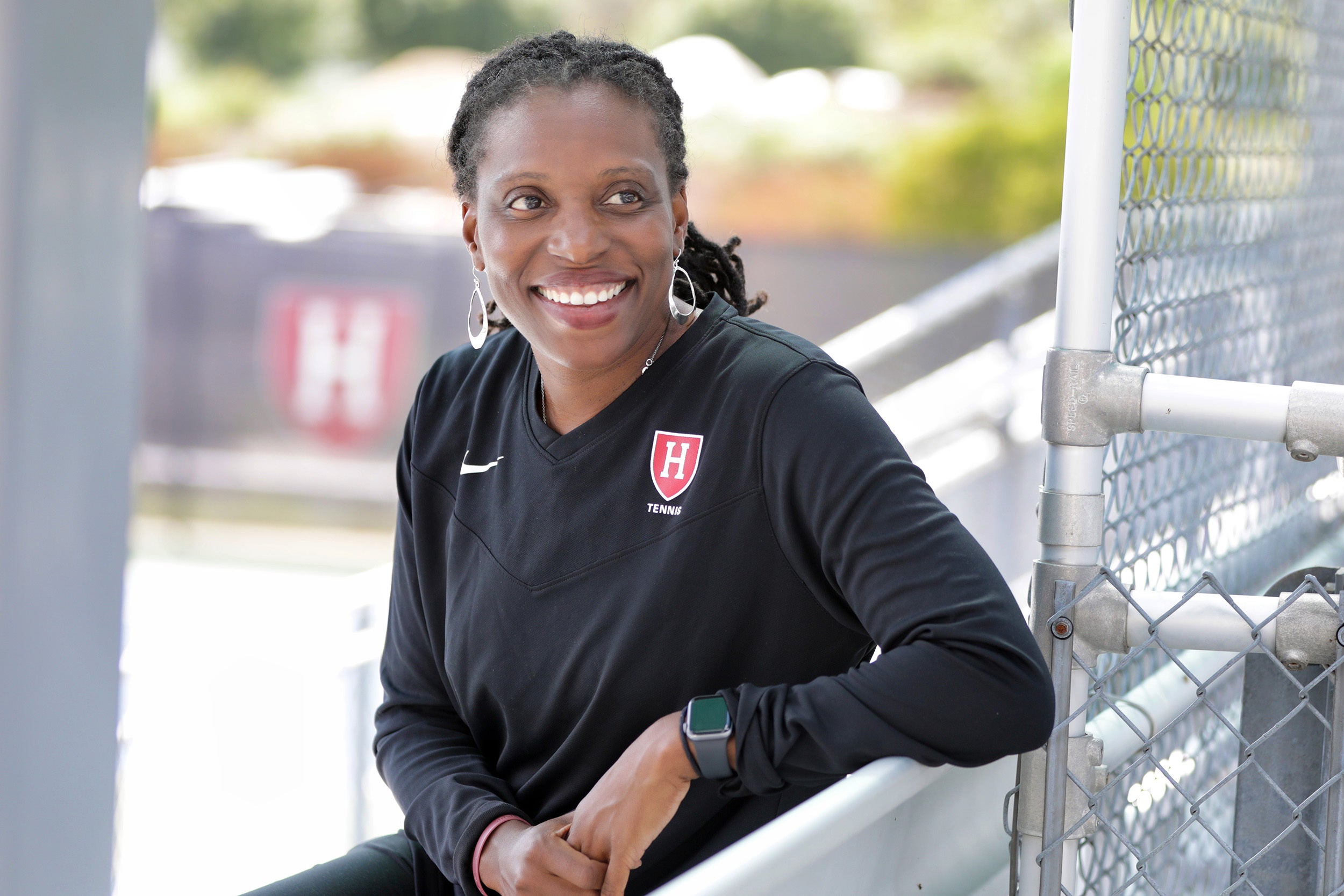
“I’ve always admired her unapologetic mindset — she hasn’t been afraid to speak her mind and to be her authentic self, even when it wasn’t so easy,” Green said of Williams.
James Byard/Harvard Staff
GAZETTE: Has Serena influenced you in your career as a player and coach, particularly as a Black woman in a sport that historically lacked diverse representation?
GREEN: I’ve always admired her unapologetic mindset — she hasn’t been afraid to speak her mind and to be her authentic self, even when it wasn’t so easy.
I remember all the hype surrounding her as a young junior player, and a lot of the hate and negativity that came along with being a strong Black woman in a very white sport. She has endured and persevered, despite all the challenges she’s encountered.
Being one of a few Black women coaches hasn’t always been easy for me, but Serena’s example has helped me persevere through my own challenges.
GAZETTE: How has Serena changed the game of tennis?
GREEN: I don’t think we’ll truly grasp the scope of Serena’s impact for many years to come.
There are so many areas where she’s made an impact — from playing with a mix of power and grace, her serve dominance, showing what longevity looks like for an athlete — how to rest and how to fuel. She also changed the world of sports marketing and entertainment.
Most importantly, she has inspired generations of young Black and brown girls from all walks of life to take an interest in tennis. There are now two Black female tennis head coaches in the Ivy League [at Harvard and Princeton], and Serena indirectly played a real role in that.
GAZETTE: Serena has famously pursued opportunities outside of tennis, including a venture capital firm and a fashion line. She reached four Grand Slam finals as the mother of a young daughter. How do you see her influence on culture and society beyond the game?
GREEN: Serena is synonymous with greatness, and I don’t think that will change any time soon. She’s been very smart and surrounded herself with great people for many years.
I think she will use her brand and status to continue to make an impact and inspire people. She’s also showing people that being an incredible athlete, businesswoman, and icon — and also a wonderful mother — is all possible.
GAZETTE: Looking into your crystal ball, where do you see Serena’s path taking her next?
GREEN: The crystal ball is not that clear! It’s so hard to guess, because she’s so versatile, but I would love to see her dominating the venture capital industry, as well as motherhood.
It would also be very cool to see her in a blockbuster movie or two. … I mean, why not? She’s Serena.




